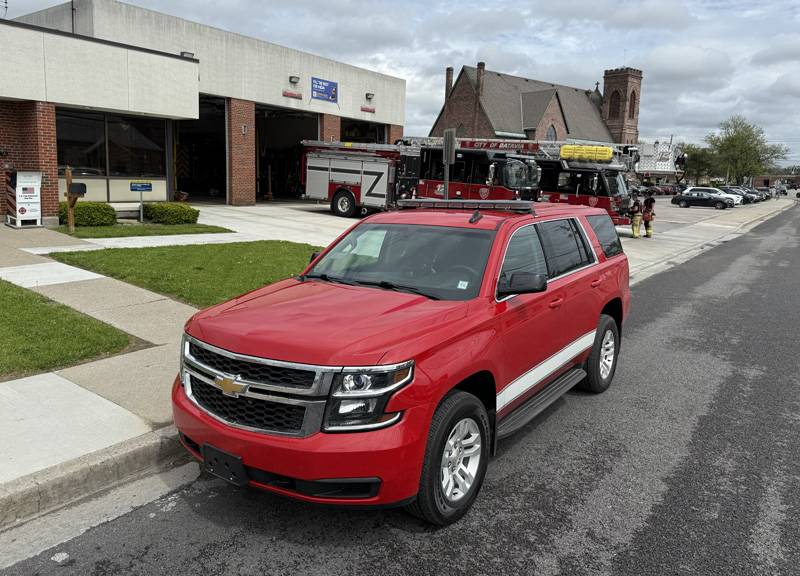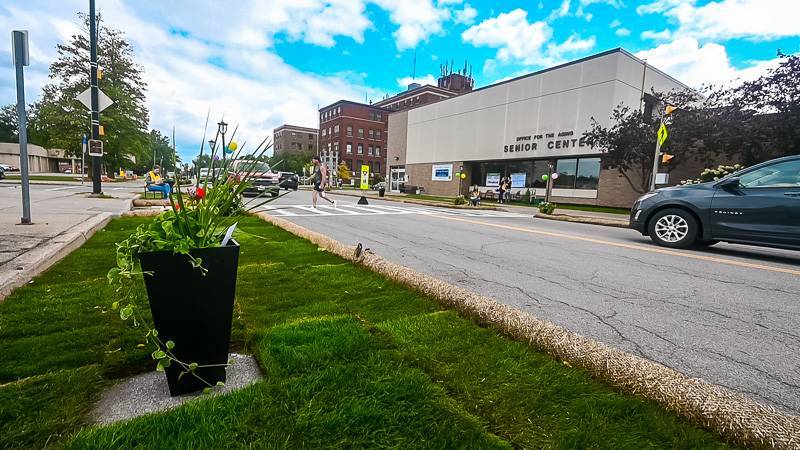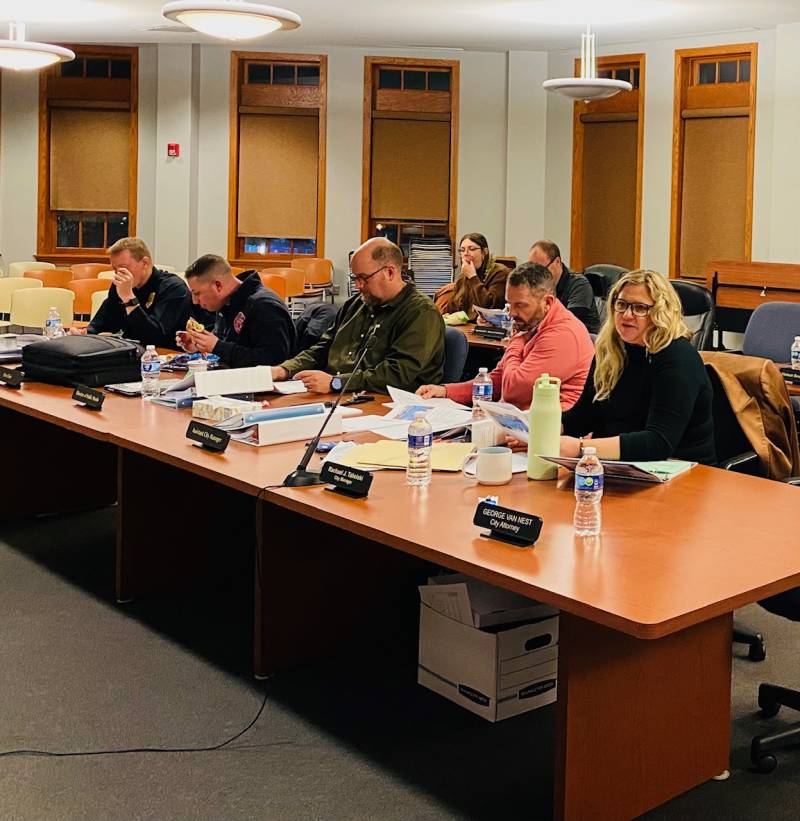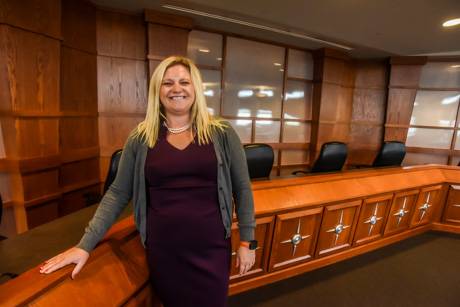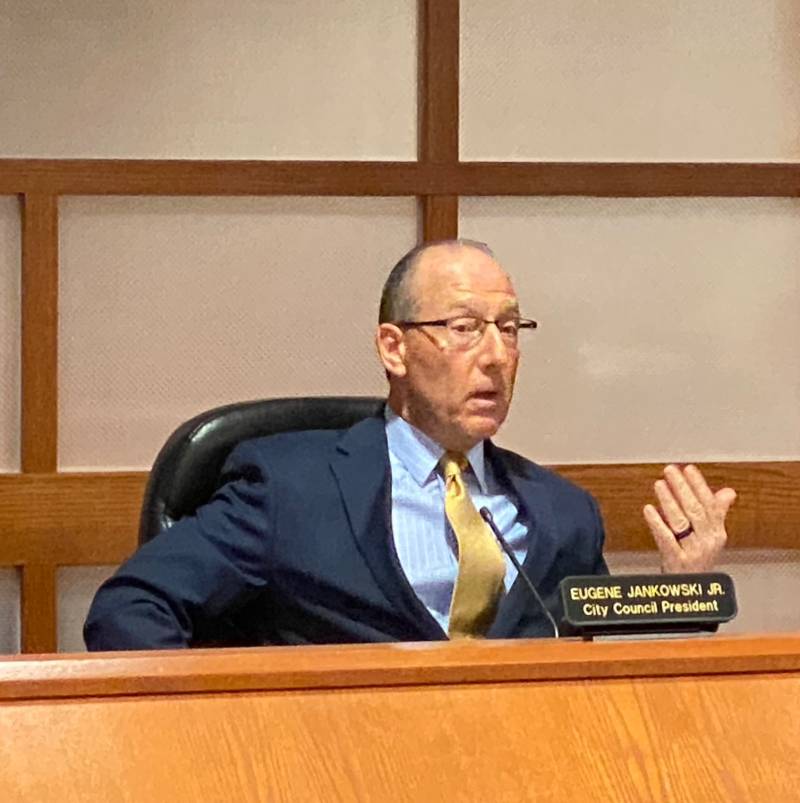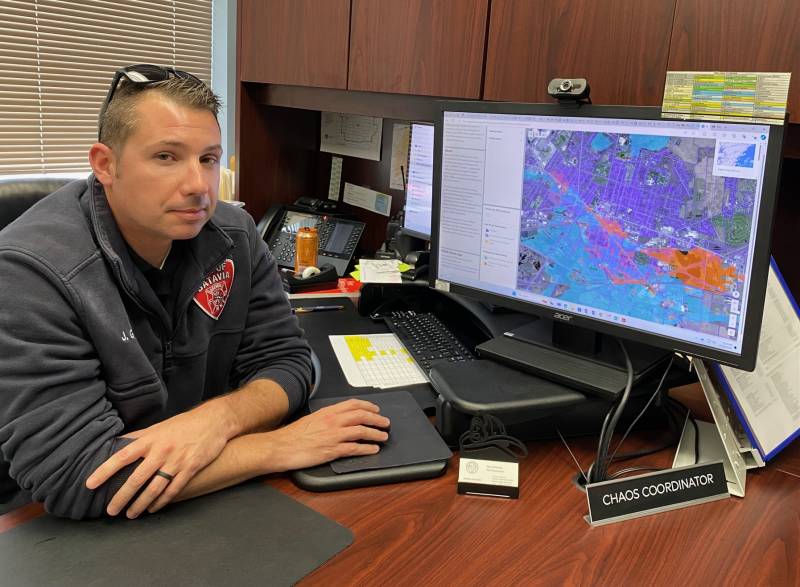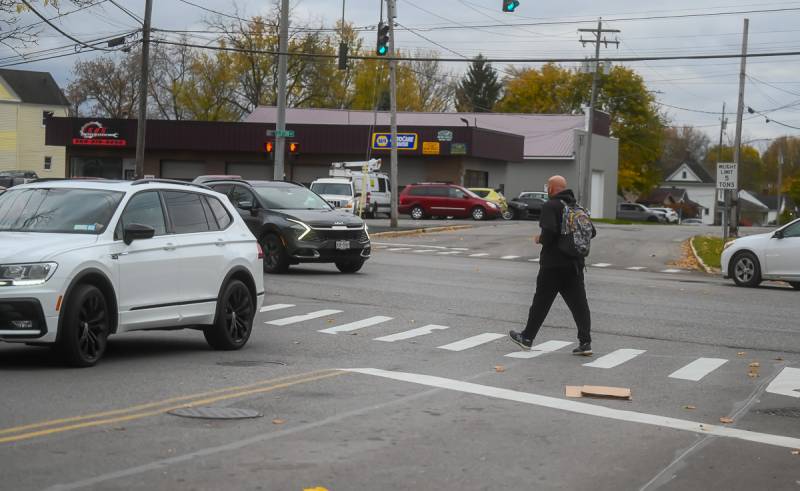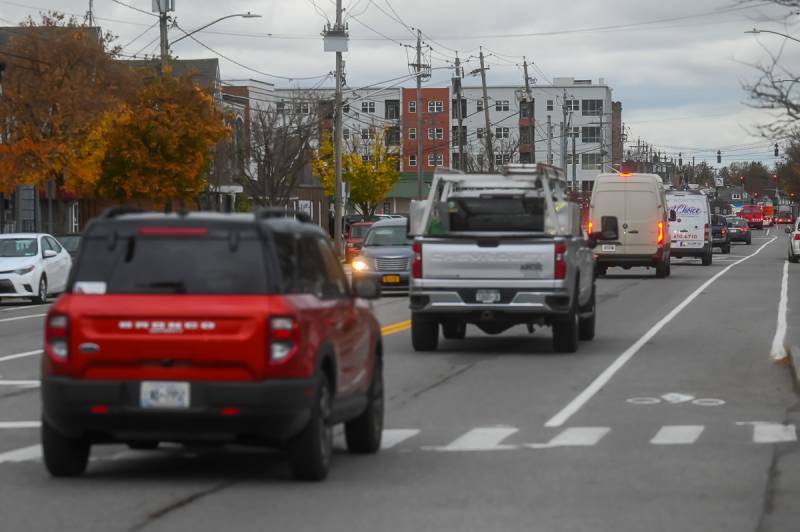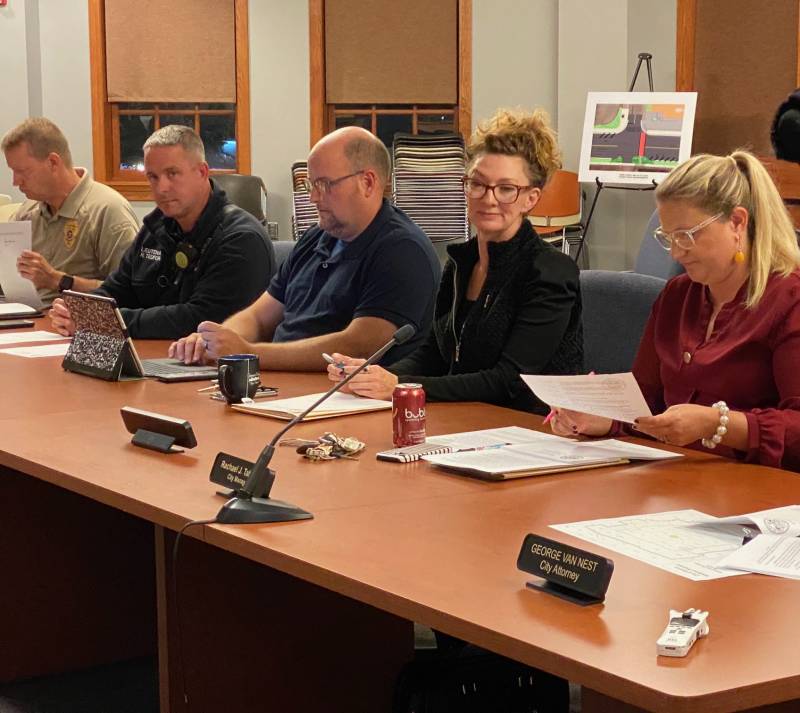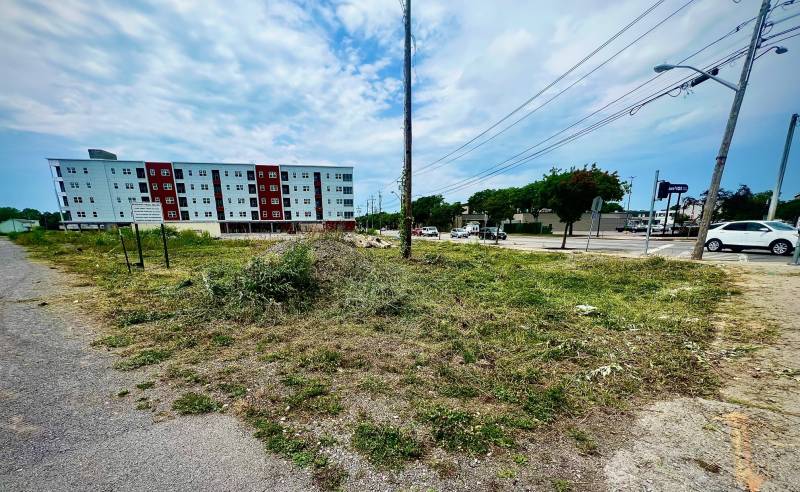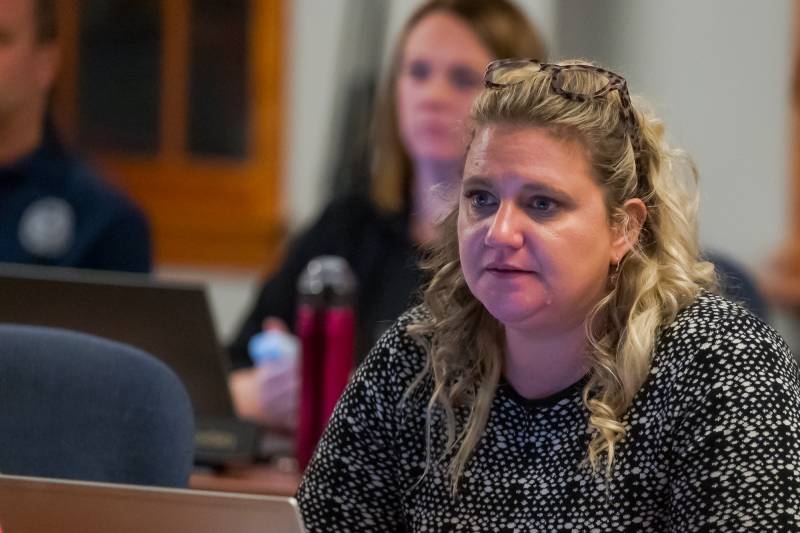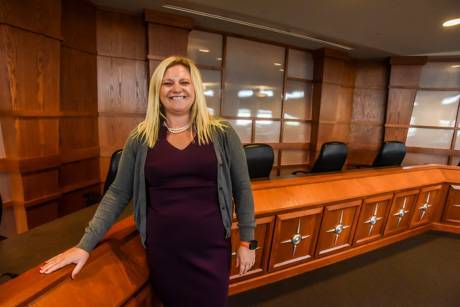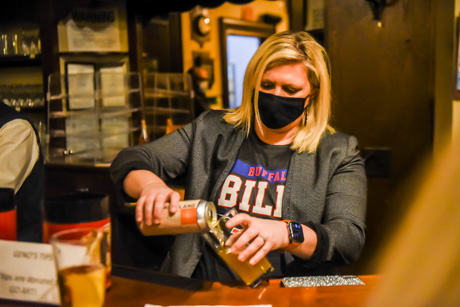Harvester Center tenants given a month to move: 'it is devastating'

2022 File Photo by Howard Owens
A long Memorial Day weekend was abruptly ended by news that every tenant of Harvester Center would soon have to find a new space.
Each tenant was sent a letter from The Harvester Team “to inform you that your existing lease will instead focus onnot be renewed and will be terminated as of June 30, 2025.”
Eric and Sarah Jones had recently made the difficult decision to halt their plans to continue working on a future Game of Throws site at Batavia City Centre and make a go of it at their existing site at 56 Harvester Ave.
Then they received the emailed letter on Tuesday night.
“It is devastating,” Sarah Jones said Thursday evening. “We moved everything out of the mall over a month ago. We told our league people last night, and it is so sad. We are sad and freaking out all at the same time. I don’t even know where to put the stuff that is in the Game of Throws building; we have so much to move out and nowhere to put it.”
Over the course of the last several months, a plan has been formulated to reposition that Harvester building as part of a “larger redevelopment project,” the letter stated.
“To achieve the ultimate repositioning and marketing plan, it is best to facilitate this project without tenants in the building, given the challenges of the project,” it stated. “Management is going to provide transition leasing opportunities into other buildings that are on the Harvester campus. Should you wish to receive more information, please email AP@havesterbatavia.com. Should you require support moving out, there will be services available provided by Harvester at an hourly rate, and including load out services requiring forklift. Inquiries should be directed to AP@havesterbatavia.com.”
Sarah Jones said that “a lot of businesses are moving across the parking lot into the red brick building,” and the coupl, e decided that wouldn’t work for their space needs “as we are too big.” An owner assistant also tried another site.
“They showed us a building that they may try to move us to,” she said. “However, it needs so much work, I don’t know if they are going to do it.”
Penguin Multimedia owners weren’t available to share any definite plans since getting the letter, but they had been in the process of relocating since new property management took over, a spokesperson said.
The Batavian reached out to the email provided in the letter, and that bounced back as an error. The address seems to misspell harvester, so we have tried again, in addition to leaving a message for John F. Wachter Jr., one of the co-owners of the property through Amerinac Holding Corp.
City Manager Rachael Tabelski initially referred The Batavian’s questions to the city attorney, and when pressed about the NY Restore grant and redevelopment plans, she recommended talking to the owners.
Renovation plans have not been a secret, and the site has received code violations on six buildings, according to city management. In December, City Council agreed to apply for a $1 million NY Restore grant to assist demolition and renovation of the expansive 29-acre property with several dilapidated brick buildings.
The wall of one buildings collapsed a few weeks ago, giving even more pause to the site’s condition in certain spots.
When she presented a recommendation for council to apply for the grant, Tabelski highlighted the possibilities of another Larkinville, a collection of businesses, new apartment buildings and public spaces along Seneca Street in the southeast section of downtown Buffalo. This area has been promoted as “one of the city’s most impressive transformations.”
“The Harvester Campus project qualifies for Restore NY funding for an extensive demolition project. The owners of the Harvester Campus are looking to strategically demolish six buildings at the campus and commit to redeveloping the remaining buildings into a multi-use campus similar to Larkinville in Buffalo,” she had said. “Some of the buildings slated for demolition have been cited by the city as unsafe, and in need of demolition. Removal of these buildings will offer additional parking, lighting and green space to support the remaining buildings, businesses and future redevelopment on the campus.”
The owners are under court order to submit an action plan for addressing the code violations, and the city’s plan, developed in cooperation with Amerinac Holding Corp., proposes demolishing the severely deteriorated buildings to open space for parking, lighting, and green areas, while supporting redevelopment of the remaining structures.
The main goals are to improve the east side's business and residential climate, revitalize properties in need of rehabilitation, and increase the city’s tax base, Tabelski had said.
Amerinac Holding Corp., a company based in Ohio led by John F. Wachter III and John F. Wachter Jr., purchased the Harvester property in 2021.

